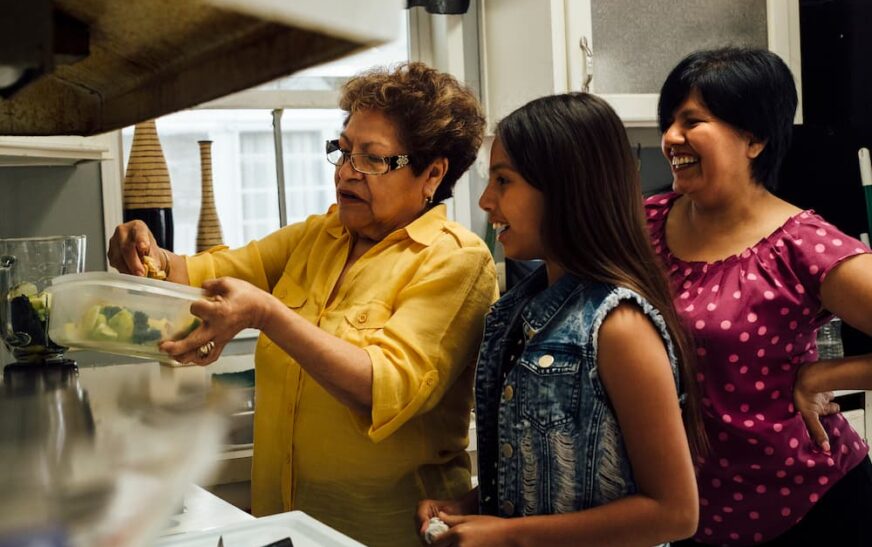There is a sound that lives in us. It’s the laughter that erupts in the middle of a story told for the hundredth time, the cumbia beat that pulls us to our feet before we even realize we’re dancing, the clatter of pots in a kitchen where everyone is talking over each other and no one feels the need to be quiet. That sound is our proof: we are still here.
For Latinas, joy has never been something separate from struggle. We know how to carry both in the same body. Our abuelas cooked feasts when money was thin. Our mothers braided our hair while worrying about bills. We learned young that joy is not what comes after the hardship—it’s what gets us through it. Every joke told in Spanglish, every birthday celebrated in crowded apartments, every church service ending with tamales in the basement—it all says the same thing: you cannot strip us of our spirit.

To smile, to sing, to dance, to share food—these are not distractions from survival. They are the strategy. They are how we survive. When society tries to flatten us into statistics or headlines, joy is the reminder that we are more than what has been done to us. We are more than deportations and wage gaps and court delays. We are also the smell of arroz con leche on a winter morning, the flash of color in a folklórico dress, the chorus of voices belting out canciones that carry entire histories inside them.
Joy, for us, is not quiet. It is loud and unapologetic. It spills into the streets during parades and marches. It thunders in mariachi and reggaetón and salsa. It takes over entire blocks during fiestas. It is not the polished, curated joy of advertising campaigns—it is messy, sweaty, communal. You can’t package it because it belongs to the people. It belongs to us.

And it is political. Do not mistake it. To laugh when the world expects silence, to dance when the headlines tell us to despair, to feed one another when systems starve us—this is defiance. Joy declares: we are not just surviving, we are living. In immigrant rights marches, we bring music. At vigils, we share pan dulce. Even in mourning, we find ways to hold one another with light. That is not denial—it is resistance.
What holds us together is that joy is never private. It is meant to be shared. A potluck is not just food—it’s community insurance that no one goes hungry alone. A quinceañera is not just a coming-of-age—it’s a statement that even in a country that doubts our daughters’ worth, we will celebrate them with crowns and gowns and songs. We bring our joy out into the open because that is how it multiplies.

This joy has roots. It reaches back to Indigenous rituals, African rhythms carried through the Caribbean, the resilience of pueblos and barrios that refused to disappear. We inherited the instinct to turn struggle into song, scarcity into feast, grief into memory that still dances. It is why every generation of Latinas has kept the tradition alive.
The world often asks us to perform resilience as quiet dignity. But our resilience has always been noisy. It laughs too loud, it takes up space, it throws open the doors and invites everyone in. That is our form of justice: not just to endure, but to do so beautifully, together.
The lesson we carry is simple and hard: joy is not naïve. It is not an escape. It is the boldest way we tell the world we have not been broken. And as long as our kitchens are full, our music is playing, our children are laughing—we will not be.













